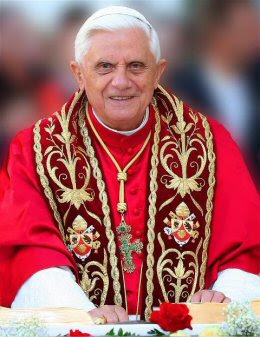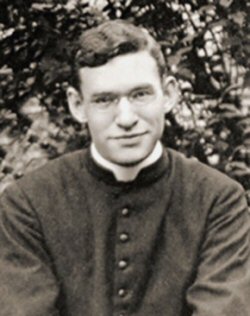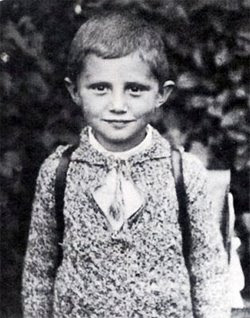"It’s not just oil, priests are also a scarce resource"
From Intermountain Catholic
By Priscilla Cabral
SALT LAKE CITY — The number of Catholics and the number of priestly and religious vocations in the world has increased thanks to the vitality of faith in Africa and Asia, said the last edition of the Yearly Statistics of the Church. However, there has not been an increase in the number of priests in America and the need for priests is evident in the United States. In this country, approximately 41,000 priests serve over 64 million Catholics; a number of parishes have had to receive foreign priests to compensate the scarceness.
Nevertheless, there is trust that “God has never abandoned, and will never abandon, his Church. God is still inciting vocations to his service,” said Father Javier Virgen, vicar for Hispanic Affairs.
Then, why is the number of priests increasing in Africa and Asia while the numbers in the U.S. remain stable?
A survey to seminarians in the U.S. and Canada – made by the Secretariat for Vocations and Priestly Formation of the United States Conference of Catholic Bishops – pointed a materialistic culture as the biggest hurdle to an increase of vocations in North America.
“The materialistic environment makes young men and women focus on a lucrative profession,” said Fr. Virgen.
The values of service and generosity are shadowed by selfishness and individualism, he added. “They don’t make the decision to pour themselves for others.”
There is also the lack of appreciation for celibacy. According to Fr. Virgen, the message from fashion, music, magazines, and other media say: “Let yourself be driven by pleasure.”
“But celibacy is not reduced to sex,” said Fr. Virgen. “Celibacy is a commitment of love and generosity.”
It is also “a symbol and a sacrifice that is offered in order to be consecrated to the community,” said Father Langes Silva, judicial vicar for the Diocese of Salt Lake City.
“The commitment of the priest with his community would possibly not be as devoted as it would be without the vow of celibacy,” he said before adding that Saint Paul considered that if a man has to choose between marriage and devoting his life to God, then the obvious option is to choose a life dedicated to the Creator.
Still, there are some who think St. Paul’s recommendation is no longer adequate to the current situation of the Church.
“The promise to celibacy is a disciplinary norm, which means the Church can change. I think this will be debated thoroughly,” said Fr. Silva. (It may be debated, but the discipline will not change any time soon and there is no sense that even if it did, that a married clergy will "solve" the vocations shortage)
Among those who are opposed to a change on celibacy is Fr. Virgen. This vow is “the way to pour yourself in body and soul using your talents and gifts to serve others in the name of your love for God,” he said.
Materialism and depreciation for celibacy are not the only factors in the lack of priests. The number of men that would consider the priesthood significantly depends on how priests are perceived. “The priest has a relevant role in society… He is someone active in society, an extremely prepared person, not only on spirituality, but also in the professional life aspects such as education, finance, family, politics,” said Fr. Silva.
A priest is also a “happy, satisfied person who irradiates,” said Fr. Virgen.
A few priests have given the Church a negative light with financial, sexual, and substance abuse scandals, said Fr. Silva.
On the other hand, a committed priest is an effective tool in generating more priests. The Secretariat of Vocations revealed that more than 70 percent of the seminarians who were surveyed received a personal invitation to consider the priesthood from a priest.
Yet, those considering a priestly or religious life said their families were their main source of motivation.
Parents should “educate their children in the Christian faith and invite them to respond to the vocation for which they are called,” said Fr. Virgen. The community also has the obligation to “Ask the Lord of the harvest to send out workers into his harvest field,” he said.
Meanwhile, in anticipation to a crisis, bishops, religious brothers and sisters, academics, and different groups have started to debate the possibility of including women and married men as candidates to receive the sacrament of the priestly order, said Fr. Silva. (Debate away, woman will not be ordained to the Priesthood. From Pope John Paul II in Ordinatio Sacerdotalis - "Wherefore, in order that all doubt may be removed regarding a matter of great importance, a matter which pertains to the Church's divine constitution itself, in virtue of my ministry of confirming the brethren (cf. Lk 22:32) I declare that the Church has no authority whatsoever to confer priestly ordination on women and that this judgment is to be definitively held by all the Church's faithful.")
But the change that we will probably see is that “The commitment of the lay will increase and they will assume greater responsibilities in every kind of authority,” said Fr. Silva.
If you are actively discerning a vocation to the Priesthood, Diaconate, Consecrated Life, or Marriage and you are looking for information to help in your discernment, BE SURE TO CHECK the section at the bottom of the right sidebar for the "labels" on all posts. By clicking on one of these labels it will take you to a page with all posts containing that subject. You will also find many links for suggested reading near the bottom of the right sidebar. Best wishes and be assured of my daily prayers for your discernment.

Subscribe to:
Post Comments (Atom)























No comments:
Post a Comment